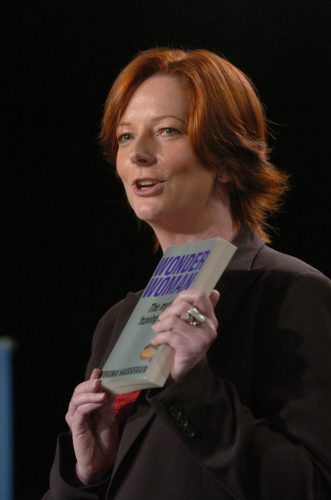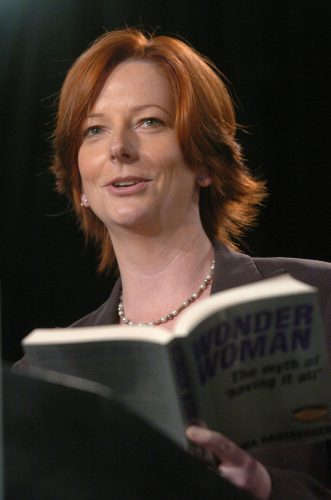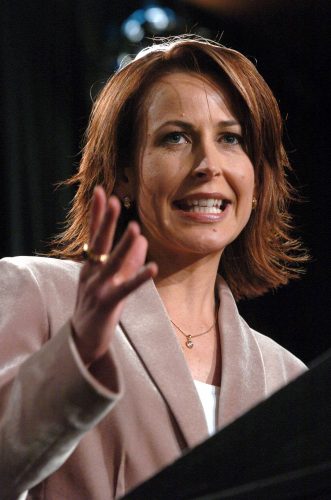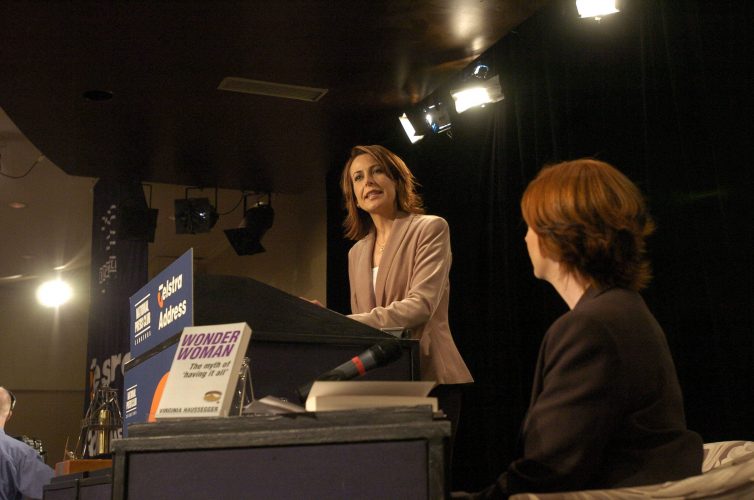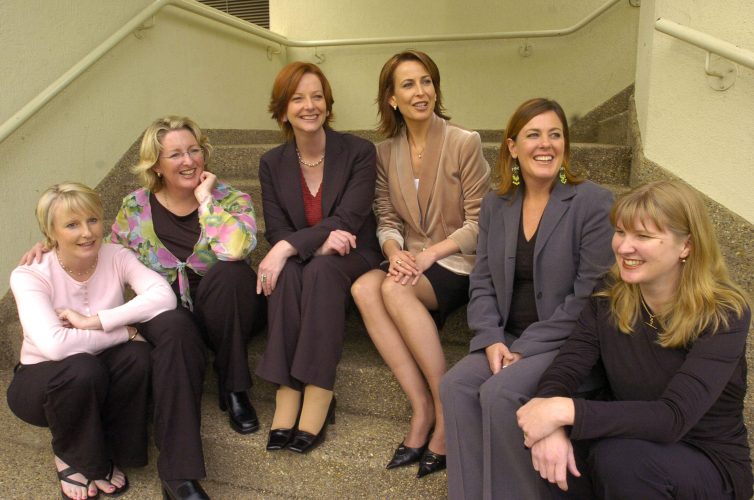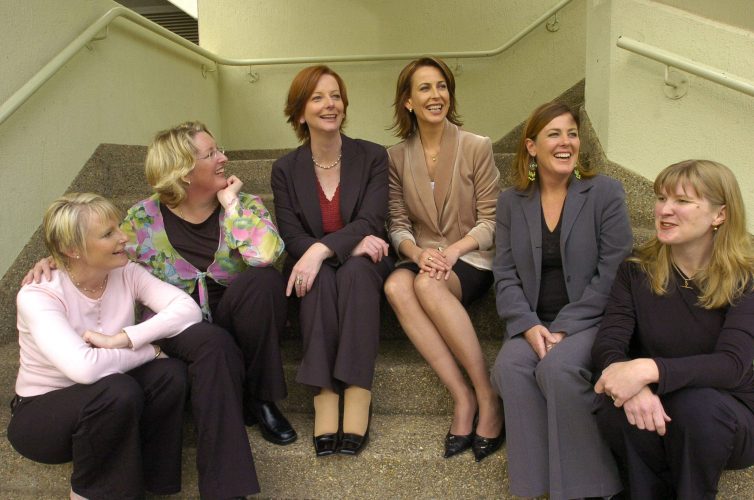As Australia’s outgoing First Lady, Janette Howard, swept into the Sofitel Wentworth Hotel in Sydney last Saturday night, another former first lady slipped past her. She skirted the media throng, the waiting hordes, the attentive reception staff, and made it into the lift undetected.
It’s extraordinary that no one noticed her, not even one of those prowling photographers on the hunt. But then it was an extraordinary night all round. And none of us could take our eyes off John and Janette Howard.
It’s not that Kirsty Sword Gusmao was deliberately trying to duck for cover. It’s just that this wasn’t her night, her election and her media problem. She was grateful to get out of the way.
Days later she laughed at the surreal memory.
”There were media everywhere, and no one was asking me for a comment on anything,” she said. ”It was wonderful.”
You certainly can’t begrudge Australian-born Gusmao’s joy at being out of the limelight, even if it was just for a moment. As East Timor’s former first lady, and wife of Xanana Gusmao, Kirsty Sword Gusmao had fleetingly harboured aspirations of a quiet life by now. Instead the political instability and recent violent unrest in East Timor has seen her husband catapulted from president into the more demanding role of prime minister.
He had always said he would finish his term as President and retire to become a pumpkin farmer. But he knows he can’t even begin to think of planting any seeds until East Timor is at peace. And so does Kirsty Sword Gusmao. Both have rolled up their sleeves.
Given that this year’s elections in East Timor resulted in violent street riots, arson and torching of homes, and sporadic mob attacks, is it any wonder she was bemused by the media scrum on Saturday night. What looked like an undignified scramble, to most of us, must have looked like a pleasant walk in the park to her.
Wasting no time after the announcement of Australia’s Prime Minister-elect, Xanana Gusmao phoned Kevin Rudd to invite him to visit East Timor. He suggested Dili might even be a short stopover for Rudd before he attends next month’s global climate-change meeting in Bali. There’s been no commitment yet from Rudd’s office. But there is no doubting the symbolic power of such a visit early in the life of Australia’s new Government.
The path to democracy and independence was never going to be smooth for East Timor. Traumatised by 25 years of brutal occupation by Indonesia and guerrilla warfare in the fight for national liberation, the people’s wounds run generations deep. The scars will be worn for generations more. And it is this that perhaps Australia needs to better understand.
While in the past Australia has been guilty of forsaking our desperately troubled near neighbour, our current financial and practical commitments and support have clearly helped provide independent East Timor with a lifeline. The continuity of that support is crucial.
But we need to be patient.
It is true that there has been a considerable flow of aid money and global NGO support into East Timor since independence was declared in 2002. And there is no doubting Australia’s recent generosity. Our current annual aid budget is $73million, a substantial increase on the previous year. On top of that, Australia’s troop and security support has been pivotal to the young nation’s survival. There are 780 Australian troops and 50 Australian Federal Police officers in East Timor.
And it is also true that now, thanks to the lucrative potential of oil and gas reserves, East Timor’s Petroleum Fund has accumulated savings of about $US1.4billion ($A1.6billion).
All of which has some asking: why is it that the last East Timorese Government failed to spend two- thirds of the annual budget? And why do 40 per cent of the population still live on about 50c a day? East Timor has one of the world’s fastest growing populations, highest fertility rates, highest infant and maternal mortality rates, and is considered East Asia’s poorest nation.
Then, just when some impatient, fast-moving bureaucrats, who are accustomed to neat ”outcomes”, are wondering what’s the hold-up in progress, there is a sudden and unpredictable outbreak of mob violence.
The speed of change in East Timor over the past five years has left many in its wake.
The political crisis that erupted last year, and the sporadic violence that led tens of thousands to flee their homes and seek shelter in makeshift camps, would seem to be yet another layer of trauma.
The fact that many of the women living in the impoverished camps are refusing to return to their homes and villages is really not surprising. As victims of decades of warfare, in which women and girls were often the easy targets of military-backed militia raids, and subjected to gross violations, torture and sexual abuse, is it any wonder that distrust and fear are embedded in some of these people, most particularly the women?
Kirsty Sword Gusmao is in Australia to talk about the plight of women in her adopted land. And there is no shying from painful truths. However, the woman who is seen by many as the ”mother of a nation” is surprisingly optimistic about the spirit of the East Timorese and their ability to thrive.
